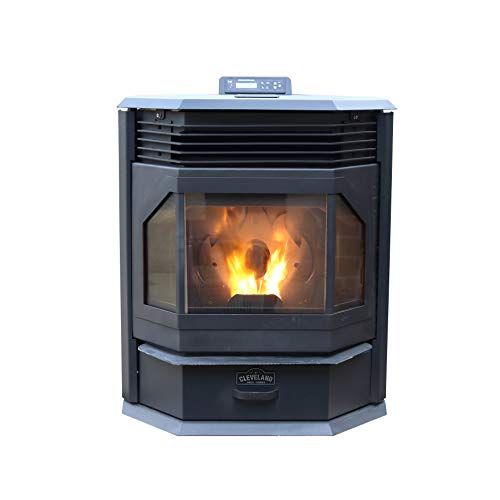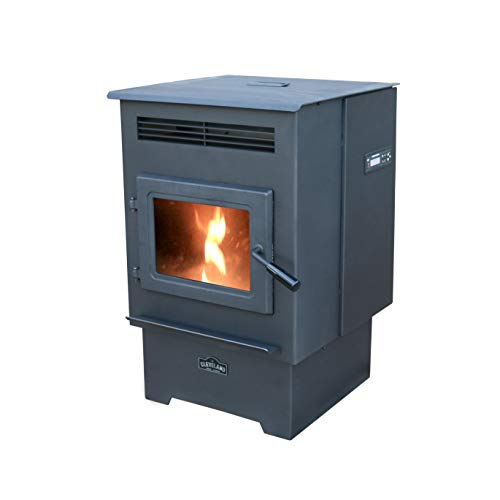This Week's Top Stories About Pellet Stoves For Rvs
페이지 정보

본문
 Pellet Stoves For RVs Vs Wood Stoves
Pellet Stoves For RVs Vs Wood Stoves RVs are a great option to enjoy camping, but they can be chilly at night. You'll need an efficient source of heat. Two options that are popular are wood stoves and pellet stove outdoor stoves. Both options have different benefits and the one that is best for you will depend on your needs and preferences.
RVs are a great option to enjoy camping, but they can be chilly at night. You'll need an efficient source of heat. Two options that are popular are wood stoves and pellet stove outdoor stoves. Both options have different benefits and the one that is best for you will depend on your needs and preferences.Pellet stoves use biomass that is renewable comprised of recycled wood chips and sawdust. They are highly efficient and produce steady heat. They are simple to use and don't emit harmful emissions.
Heating that is cost-effective
small pellet stove stoves for rvs are an efficient alternative to propane-based heaters. They use a renewable biomass and have high combustion efficiency, which can save you money over the course of. They also use less energy, which reduces carbon footprints and consumption of energy. Pellet stoves are compact and can be used in conjunction with any standard propane tank. This makes them a good option for those looking to skip the hassle of refilling and the storage of propane tanks.
One of the most important features of any stove is its ability to warm vast areas. A quality stove can be able to heat an entire camper or motorhome. The best pellet stoves for RVs can produce up to 8000 BTUs of heat, enough to keep you warm and comfortable during your camping trip. Certain models come with thermostats that are programmed that automatically switch the stove on and off based on your schedule. They can also notify you when the pellets run out or require cleaning.
Wood and pellet stoves are two popular choices for RVs, and both provide great heating performance. They are both affordable, and they can be used in a variety of climates. However, you should be aware of the differences between these two types of stoves before making a decision.
Wood stoves utilize wood as fuel, and it must be stored and carefully collected. This could be a challenge for those who travel in remote areas. In addition, wood can absorb moisture from the air, which can cause problems for your RV's interior. Online retailers offer a broad variety of compressed wood And pellet stove composite logs you can use in your RV stove. These logs will save you lots of time and effort, letting you focus on your adventures instead of fueling.
Convenient cooking
Pellet stoves are great for campers who love cooking. These stoves are designed to extract the maximum amount of heat from the fuel, leading to efficient energy use and low heating costs. They also have automatic pellet feeding systems as well as thermostatic controls that ensure constant temperature settings. Furthermore, you can utilize them as a backup heating source in case of power failure.
Wood stoves are another popular option for RV camping. Wood stoves are an excellent option for boondocking, or camping without hookups. They require constant maintenance and regular cleaning to get rid of creosote and ashes. They also rely on firewood which can be costly and difficult to locate in remote areas. Moreover, they often require proper ventilation to prevent the accumulation of carbon monoxide and smoke within the camper.
Pellet stoves are much more efficient than wood stoves, offering the same heating efficiency and comfort, while having a lower maintenance requirement. They are also much cheaper than gas heaters, and they produce less ash and particles. Pellet stoves are also an eco-friendly fuel source than wood stoves.
While pellet stoves are more efficient than wood stoves, they need to be hooked up to an electrical power source. If your electricity is not working the stove will not function properly and could cause a dangerous situation. It is a good idea to have a backup generator or power-outage plan in place to ensure your safety and warmth. Fortunately, many wood and pellet stoves are equipped with battery backup systems or manual ignition options to prevent these problems.
Versatile
Wood pellet stoves are a great option for RVs as they provide efficient heating while providing a cozy atmosphere. They can also serve as a backup during power outages. Some models come with an emergency battery backup system that ensures the continued operation. Pellet stoves are also easy to use and require minimal maintenance. However, it's important to note that they need proper installation and ventilation.
Contrary to propane stoves that introduce gases and moisture into the air Pellet stoves burn dry combustible materials that creates clean, odorless heat. They are also more efficient than traditional wood stoves, and produce more heat at a faster rate. Apart from providing heat, pellet stoves can be used to cook food, which can turn your RV into fully functional kitchen. This feature is particularly useful in remote areas, and it can also help you save money when dining out.
Pellet stoves are not just more affordable, but they are also safer than gas and electric models. They also have a lower emission rate, which lowers the risk of fire-related damage and indoor air pollution. Be aware that they require electricity to run their automatic ignition systems as well as pellet feed system. In addition, they could require more frequent pellet refills than gas stoves.
Before installing a wood stove in your RV, take into consideration some of the factors and limitations. You'll also have to store the wood in a nearby location and ensure that your RV has sufficient storage space for the stove hopper. Wood stoves also generate a lot of heat, which can cause wall surfaces and ceilings to warp or blister. To prevent this from happening you should think about buying a stove with an insulation layer or a surface-protection kit.
Compact
Pellet stoves are able to be used easily and are compact. They have an efficient combustion process and provide a powerful heat output making them an ideal option for RVs. They distribute heat evenly, which will ensure a comfortable camping trip. You can easily control the amount of heat you wish to produce and maintain the same temperature. The SoloWilder Camping Pellet Stove, for instance, features a sturdy design and an optimized heating system, making it a great option for campers.
The fuel hopper holds the pellets that are then fed into the burn pot by an auger. They are typically made from compressed sawdust and wood byproducts but some stoves also accept other types of biomass, like kernels of corn and nutshells. The fuel is dense, which helps it burn more hot and cleaner, reducing waste and smoke emissions. These stoves are highly efficient in energy use and have an energy efficiency that ranges from 70 to 83%.
Most pellet stoves require minimum of maintenance and they are also easier to manage and light than traditional wood stoves. They can be noisy and require a space to store pellets that are dry and cool. They're also non electric pellet stove and require electricity (not suitable for camping off grid). If you're thinking about a pellet stove, make sure to choose a model that has earned an energy efficiency certification.
One disadvantage of pellet stoves is that they cost more than traditional wood-burning fireplaces and require a huge storage space. The pellet bags are expensive and can use up 40 pounds of pellets every day. They also require electricity, which could drain the battery that powers your backup.
Safety
pellet stoves inserts stoves allow you to enjoy a warm fire in your RV without having to store or haul firewood. They also produce less smoke and more ash than wood stoves and are easy to light. They also create a warm and inviting atmosphere. It is crucial to know the health risks that come when using a wood pellet stove. People who suffer from respiratory ailments or children, as well as older adults should be extra cautious before using a tiny pellet stove stove.
Most models have an electronic control system that automatically feeds pellets into the combustion chamber. This allows them to burn at the desired speed. A lot of these stoves come with a thermostat that can be programmed to maintain the right heating level. Additionally, they come with an automated cleaning system that sucks up the accumulated clinker and ashes.
A pellet stove requires electricity and ventilation to operate despite its sophisticated features. It may not work in a power failure. In these situations you must have a backup plan, like a generator, to help with heating requirements.
Another issue with pellet stoves is the burning process, which releases toxins and carbon monoxide into the air. This is a significant concern for people with chronic respiratory diseases like COPD or asthma. Carbon monoxide detectors are a must for your home. They should be installed close to bedrooms, and on every level of the house and should be tested regularly.
Pellet stoves are an excellent camping option, particularly for those who reside in a region that experiences harsh winters. They are affordable and easy to use, but they do require a power source to operate. If you plan to camp off grid, you will need to ensure that you have enough wood to fuel your stove.
- 이전글5 Land Rover Replacement Key Fob Lessons From Professionals 24.11.07
- 다음글What Makes a Live Sex Site the Best? 24.11.07
댓글목록
등록된 댓글이 없습니다.
